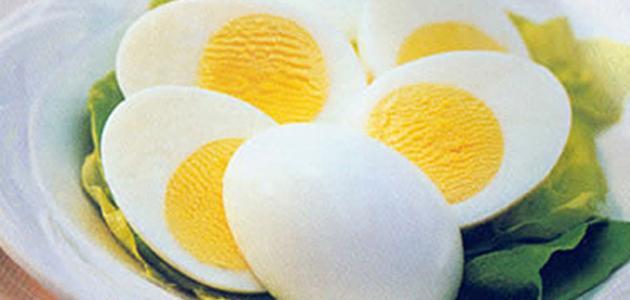hypothyroidism
The thyroid gland is a small, butterfly-shaped gland located in the lower front part of the neck. It is responsible for making and storing thyroid hormones. Where these hormones move through the bloodstream, and affect almost all parts of the body, such as the heart, brain, muscles, and skin, and hypothyroidism occurs when this gland does not make enough thyroid hormone, as this gland controls how the body’s cells use energy. From food through the metabolism process that affects body temperature, heartbeat, and how quickly calories are burned, and in the absence of enough of this hormone, the metabolism becomes slow, which may lead to many health risks; Such as feeling tired, increased levels of cholesterol in the blood, and difficulty in losing weight.
Diet for patients with hypothyroidism
Important nutrients to add
There are many nutrients that are important for a healthy thyroid gland, namely:
- iodine: As iodine is one of the minerals necessary for the production of thyroid hormones; As people with a deficiency in it are more likely to develop hypothyroidism (in English: Hypothyroidism); Iodine deficiency affects nearly a third of the world’s population, and iodized salt can be added to diets, or more seaweed, fish, dairy products, and eggs can be eaten to obtain iodine, but it should be noted that too much of it may cause damage to the body. Thyroid.
- Selenium: Selenium helps the body activate thyroid hormones, in addition to having antioxidant properties. Which means that it may protect the thyroid gland from damage caused by free radicals, and foods rich in selenium can be added to the diet to boost its levels in the body. Such as: Brazil nuts, eggs, legumes, tuna, and sardines.
- Zinc: Where zinc helps the body activate thyroid hormones as well, and studies have shown that it helps regulate thyroid-stimulating hormone (in English: Thyroid-stimulating hormone); It is the hormone responsible for stimulating the gland to release its hormones. There are many foods rich in zinc; Such as: oysters, beef, and chicken.
Food items to be avoided
There are several nutrients that may be harmful to people with an underactive thyroid gland, including:
Read also:How do I make my body healthy?- Peach updater: (in English: goitrogens); These are compounds found in many foods that interfere with the normal function of the thyroid gland. Among these foods:
- soy foods; Such as: tofu, tempeh (in English: Tempeh), and green soybeans (in English: Edamame).
- some vegetables; Such as: cabbage, broccoli, cauliflower, cabbage (in English: Kale), and spinach.
- starchy fruits and vegetables; Such as: sweet potatoes, peaches, and strawberries.
- nuts and seeds; Such as: pine nuts, millet, and peanuts.
- gluten: It is the protein available in grains; Such as: wheat and barley, as people who suffer from wheat allergy cannot eat gluten; It is considered an autoimmune disease, as research shows that people who suffer from these diseases are at risk of developing another autoimmune disease, so people with Hashimoto's thyroiditis may suffer; It is the main cause of thyroid inactivity; from wheat allergy disease; So they may need to remove gluten from their diet to help improve symptoms.
Guidance and advice for people with hypothyroidism
It is very easy to gain weight in the event of an underactive thyroid gland; This is due to the slow metabolism, and among the tips that can be followed to maintain a healthy weight are the following:
Read also:Benefits of vinegar for diet- Get enough rest: Where lack of sleep is associated with an increase in fat, especially in the abdominal area, so it is recommended to get 7-8 hours of sleep every night.
- Pay attention to eating: Where attention to the quality of food, and the speed of eating it can help to lose weight.
- Practicing yoga and meditation: It is possible to practice yoga and meditation to get rid of excess stress, and thus maintain a healthy weight.
- Follow a low-carbohydrate diet: Eating low or moderate amounts of carbohydrates contributes to maintaining a healthy weight, but it is recommended to avoid diets that are very low in carbohydrates. because this may reduce thyroid hormone levels.
Causes of an underactive thyroid
Hypothyroidism can occur when the gland fails to function properly, or if it is not stimulated by the hypothalamus or pituitary gland. Among the causes of hypothyroidism are the following:
- Hashimoto's disease: It is an autoimmune disease that leads to the immune system attacking the thyroid gland, causing inflammation, and affecting the ability of the gland to produce its hormones. As it is the most common cause of hypothyroidism in the United States of America.
- Thyroiditis: Where thyroiditis can occur due to a viral or bacterial infection, autoimmune diseases, or after pregnancy; As the inflammation causes the thyroid hormones to leak into the blood, which leads to an increase in their total levels, and thus the incidence of hyperthyroidism (in English: Hyperthyroidism), which may develop into an underactive thyroid gland after one to two months.
- Congenital hypothyroidism: the thyroid gland may not be able to function properly from birth; Which may lead to problems in physical and mental development, but early treatment can prevent these complications.
- Thyroid surgery and treatment: Where many cases can be treated; Such as: hyperactivity of the thyroid gland, goiters, gland nodules, and thyroid cancer by removing them partially or completely, which may lead to lethargy, in addition to the fact that radiotherapy may lead to this happening as well.
Symptoms of an underactive thyroid
The symptoms of hypothyroidism may be unclear and similar to the symptoms of other conditions, including the following:
Read also:The easiest diet for the abdomen and buttocks- Changes in the menstrual cycle.
- constipation;
- Depression.
- Hair loss and dryness.
- Fatigue (in English: Fatigue).
- feeling cold.
- slow heart rate
- An enlarged thyroid gland (in English: Goiter).
- Unexplained weight gain or difficulty losing weight.
- Carpal tunnel syndrome.
Risk factors for hypothyroidism
women count; Especially elderly women are more likely to develop hypothyroidism compared to men, and other risk factors include the following:
- Ethnicity.
- the age; the incidence increases with age.
- Premature graying.
- autoimmune disorders; Such as: diabetes, sclerosis, wheat allergy, rheumatoid arthritis, Addison's disease, pernicious anemia, vitiligo, bipolar disorder, and Down syndrome.









